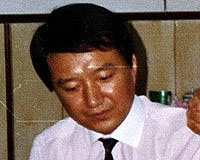| . |  |
. |
Santiago, Chile (UPI) Aug 27, 2009 Plunging Latin American exports and other effects of global recession appear to be pushing the region more into a Chinese embrace, as cash-flush Beijing builds major channels for purchases of food and raw materials from cash-strapped South American partners. China has also used its hard currency reserves to invest heavily in energy, transportation and telecommunications in the region. China regards Central and South America as central to its strategy of consolidating international links that reinforce its view of food and energy security while diversifying markets for exports. The fact that, unlike everybody else reeling under recession, China has poured billions from its export earnings into stimulating its own economy is not lost on Latin American strategists. They see opportunities in inducing Chinese cash into Latin American economies as well. U.S. economist and Nobel laureate Paul Krugman told a business forum in Bogota, Colombia, that the region should prepare for a slow but painful recovery and not despair, as it can extricate itself from the quagmire by exporting more and finding new partners. This is where China comes in, according to most analysts and post-crisis studies on Latin America's economic direction since the recession hit the region in fall 2008. The U.N. Economic Commission for Latin America and the Caribbean, or CEPAL, noted in its report that China's sustained demand for food, energy and minerals has helped Latin American countries to stimulate their economies through exports and blunt the onslaught of recession. CEPAL, which has headquarters in Santiago, Chile, and is also known as ECLAC, said, "China's domestic market has come to the rescue of Latin American exports." China is currently the main destination for Brazilian and Chilean exports and the second for Argentina, Costa Rica, Cuba and Peru. CEPAL said China had already made an "exceptional contribution" to the current cycle of recovery, particularly in those countries. But it warned Latin American exporters against complacency, pointing out they need to attract Chinese capital into sectors other than those of current interest to Beijing to forge a lasting strategic partnership. China is importing mainly food and raw materials and looking to acquire more stakes in oil, transport and telecommunications. Chile is negotiating a free-trade agreement with China that will open the way for Chile to become a platform for investment and a bridge for trade between China and the continent. For Brazil, CEPAL said, "China is a mighty ally" along with India and Russia, and Venezuela has pursued a policy of active collaboration. Analysts said both China and Venezuela appeared locked in a political understanding based on a policy of minimizing U.S. influence, currently pursued by President Hugo Chavez. Analysts cited the current campaign by Chavez to drum up pan-American opposition to Colombian-U.S. military collaboration against drug-smuggling to North America. Chavez says the U.S. use of Colombian military bases is a direct threat to Venezuela. Venezuela has taken its own initiatives to build political bridges through trade, but its scope does not compare with the economic thrust of China. CEPAL figures show that recession has had the least impact on Latin American exports to China, while exports to the United States and the European Union nose-dived. Latin American exports to China dropped 4.1 percent compared with 36.3 percent for the EU and 35.3 percent for the United States. "The Chinese economy is one of the few that has kept expanding in the middle of the world crisis," CEPAL said, adding Latin America must seize the moment to attract more East Asian investment. "This is the right moment to define a strategic link with China," CEPAL said. Osvaldo Rosales, CEPAL's director for international trade and integration, told the Xinhua news agency China has become a "privileged partner of Latin America" and the two need to define a joint strategy to develop ties. Rosales said he worried about Latin America's export structure, which focused on a few products and natural resources, instead of a more diverse basket of exports. "Latin America is in some ways linked with China, the world economy's engine of the 21st century, but it is doing that with an export structure from the 20th century," Rosales said. Latin America should attract more Chinese investment in infrastructure projects in addition to energy and telecommunications, he said. Share This Article With Planet Earth
Related Links Global Trade News
 China handling Rio Tinto case 'expeditiously': Australia
China handling Rio Tinto case 'expeditiously': AustraliaSao Paulo (AFP) Aug 26, 2009 China is handling "expeditiously" the case of an arrested Australian executive with mining giant Rio Tinto who faces bribery charges, Australian Foreign Minister Stephen Smith said Wednesday. Smith reiterated that Australia viewed it as "a good thing" that the executive, Stern Hu, was being investigated on criminal charges rather than the more serious espionage allegations China had ... read more |
|
| The content herein, unless otherwise known to be public domain, are Copyright 1995-2009 - SpaceDaily. AFP and UPI Wire Stories are copyright Agence France-Presse and United Press International. ESA Portal Reports are copyright European Space Agency. All NASA sourced material is public domain. Additional copyrights may apply in whole or part to other bona fide parties. Advertising does not imply endorsement,agreement or approval of any opinions, statements or information provided by SpaceDaily on any Web page published or hosted by SpaceDaily. Privacy Statement |